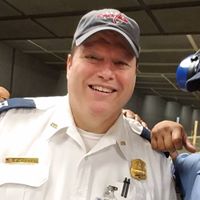SELF-CONTROL – LESSON FIVE
Friday April 3rd, 2020
Self-control is the ability to control your emotions, behaviors and desires in the face of external demands to function appropriately in society.
Self-control is one of the more important things you can master. Things like making the right choices, overcoming bad habits, waiting, focusing, and pursuing your goals all depend on you learning self-control. Right now, you have parents, teachers and instructors who will keep you from doing things that you shouldn’t do, but one day soon, the decision will be up to you. Self‑control helps you make that decision and stick to it. Candy before dinner, skipping a workout, or staying up late may all be things you want to do and things that you are sure will feel great right now. Self-control is the ability to look at those things and realize that the immediate reward isn’t worth the eventual consequence. All of the decisions we make have good and bad to them. As you grow up, you will learn to make the right decisions, and self-control will help you stick to them.
In the late 1960’s, Stanford researcher Walter Mischel led an experiment on self-control. It was discovered that children who demonstrated more self-control did not get into as much trouble, were better students, and made more friends. These children also planned ahead more, coped better with problems, got along better with peers, and adjusted to new life experiences better. Looking to the future, they were more self-confident and determined, got accepted to better universities and scored about 250 points higher on their SATs.
Self-control is something that children and adults must learn. It is a very important skill to be able to use and develop that will help with relationships, success and goals in the future. It is very important to lead by example and show your children how to control their feelings and behaviors. Children learn a lot about themselves while developing self-control and through martial arts they can master this skill to help them through their entire life.
Parents and/or guardians, how can you help?
Demonstrate your personal self-control in front of and with your children. For example, if you cannot find your car keys as you are trying to get the kids out the door, take a deep breath and ask your children to help you find the missing keys Talk them through the process. Back track where you had them last and show your children how to solve the problem instead of losing your self-control and getting upset you cannot find the keys right away.
- Help your children develop self-control by not reinforcing bad behavior.
- Help your children identify their emotions and thoughts that cause them to behave out of control so they can learn to show self-control in those areas.
- Help your children determine what areas of their lives need more self-control.
- Help your children understand that when they bow onto the dojo mat, they are to leave their other problems off the mat which is self-control.
Can you apply what you learned this week, this weekend?






